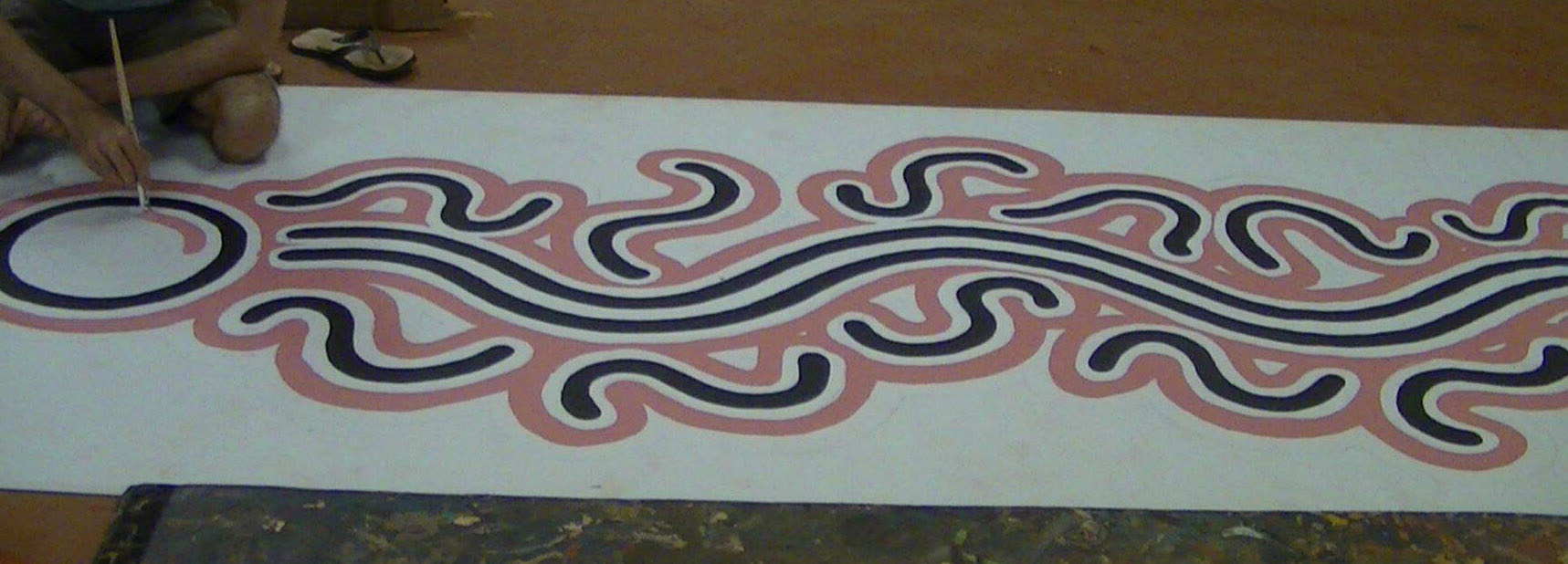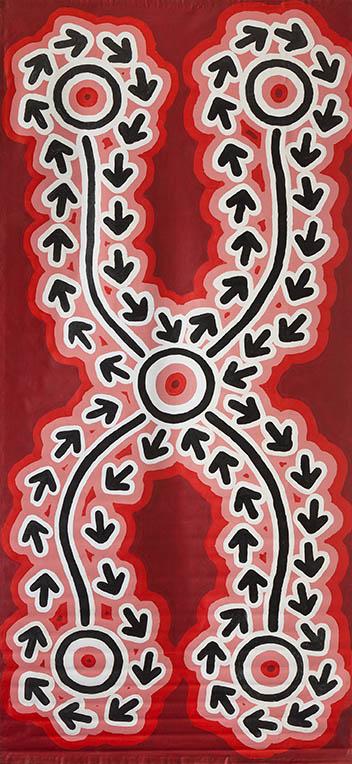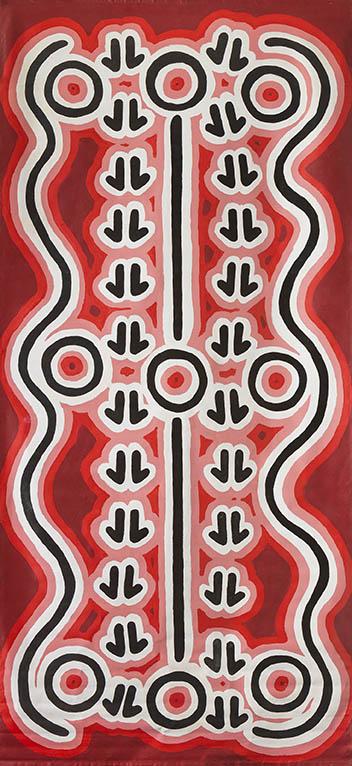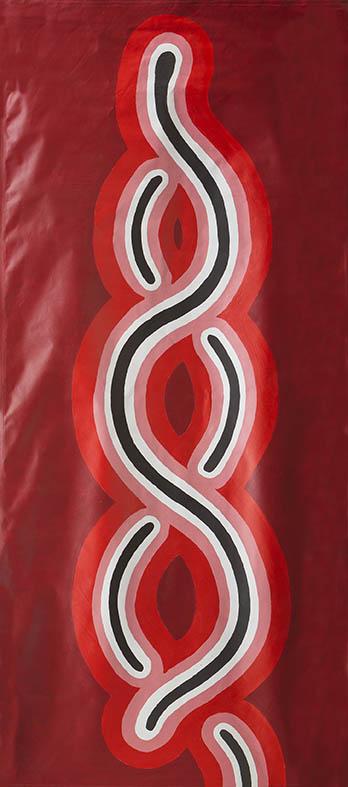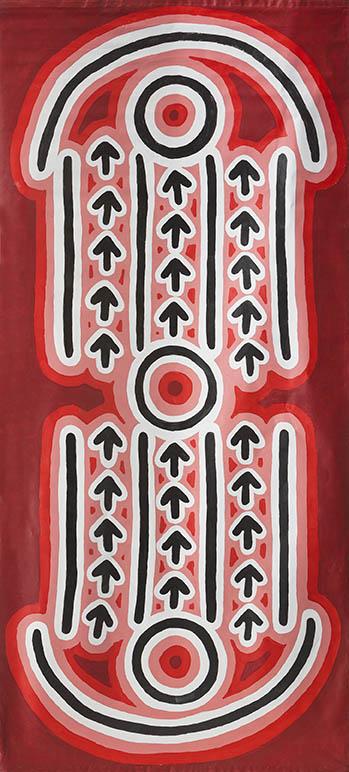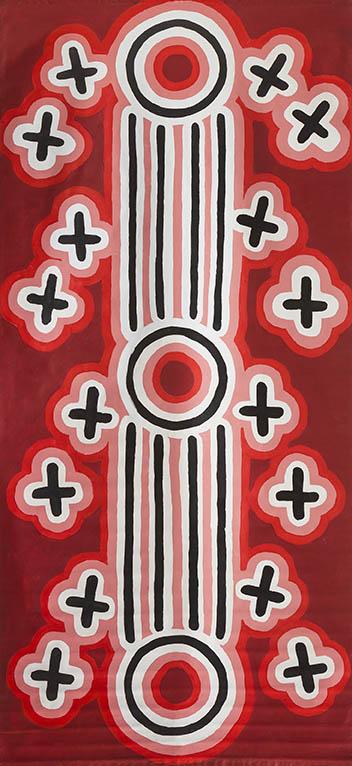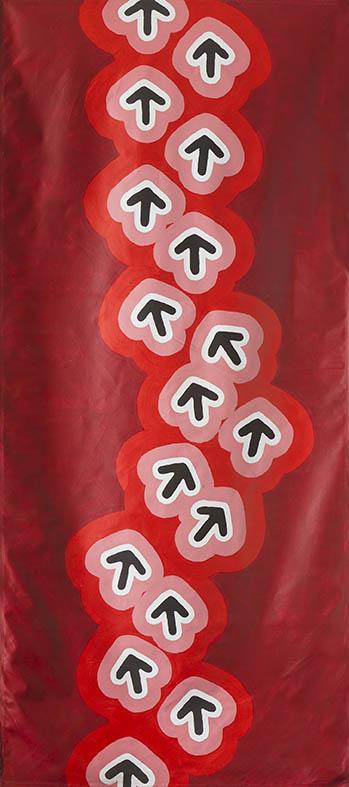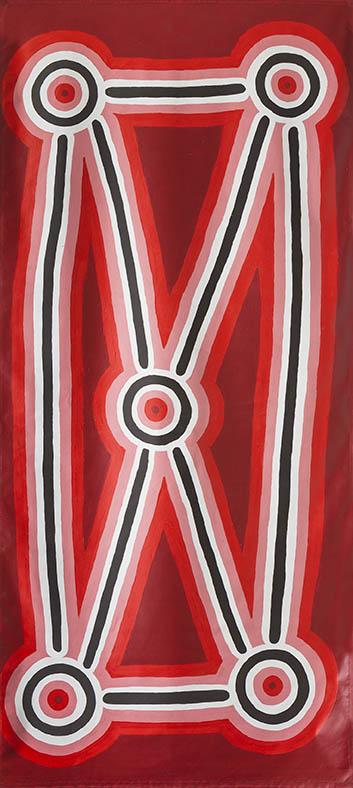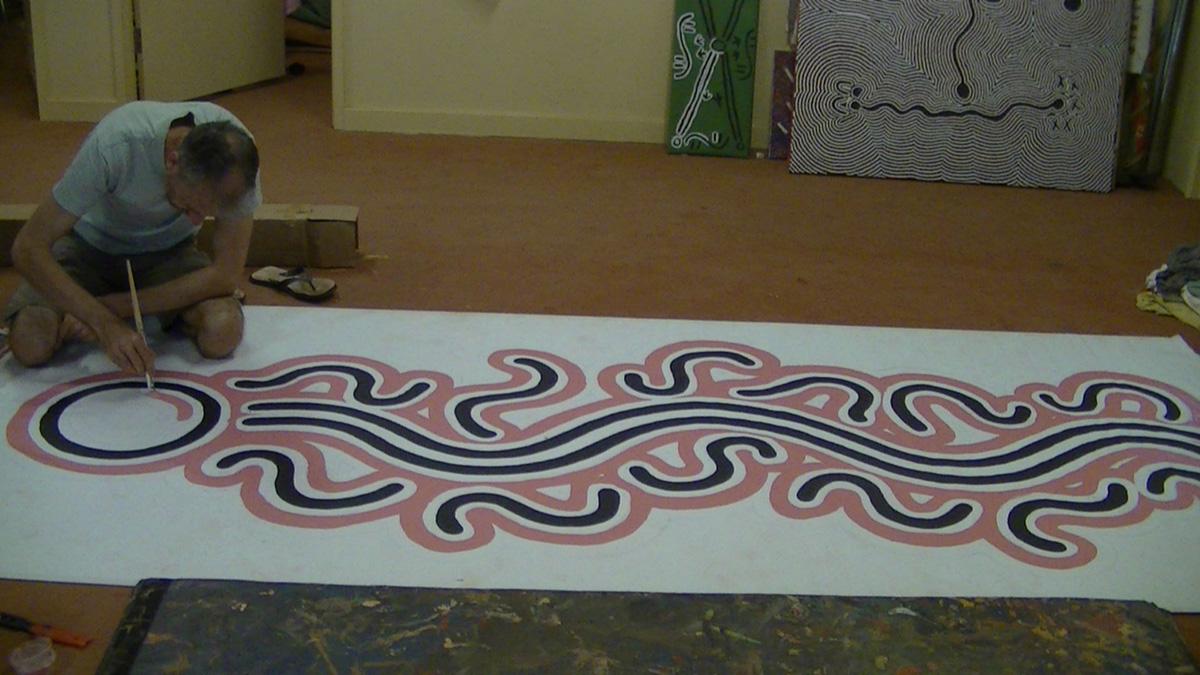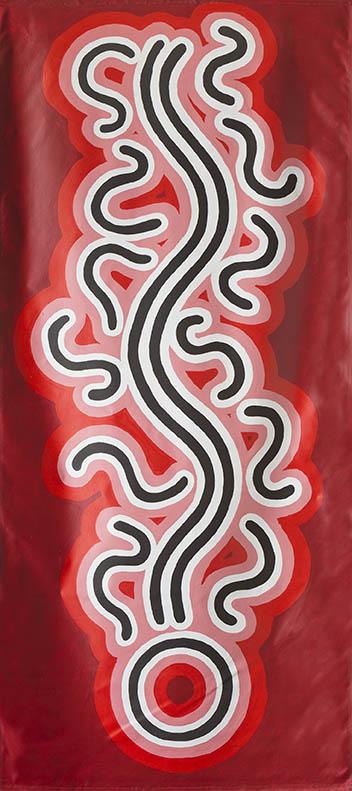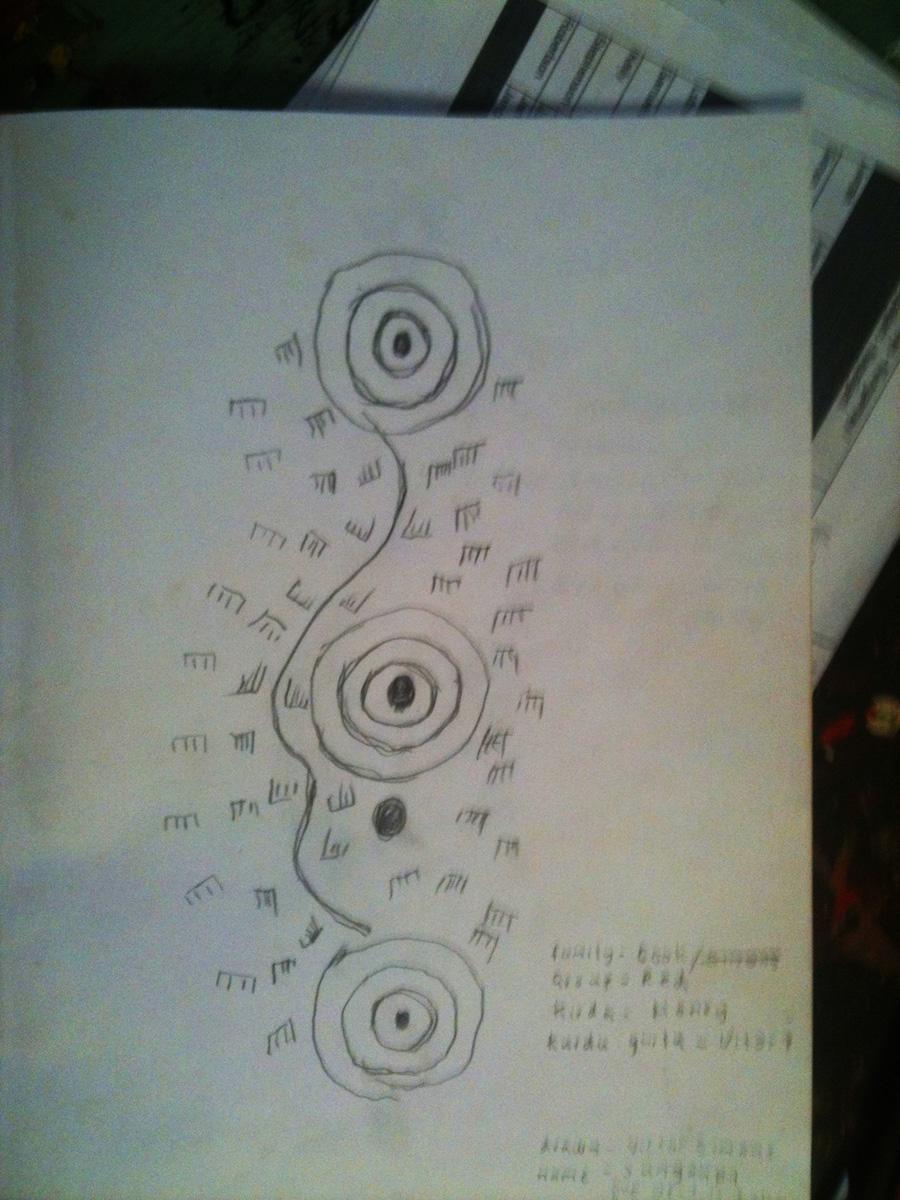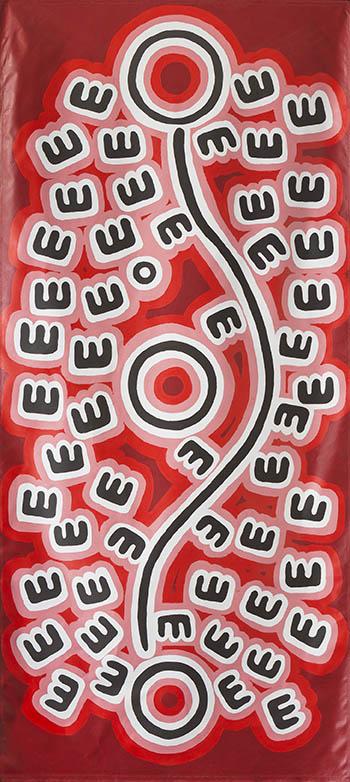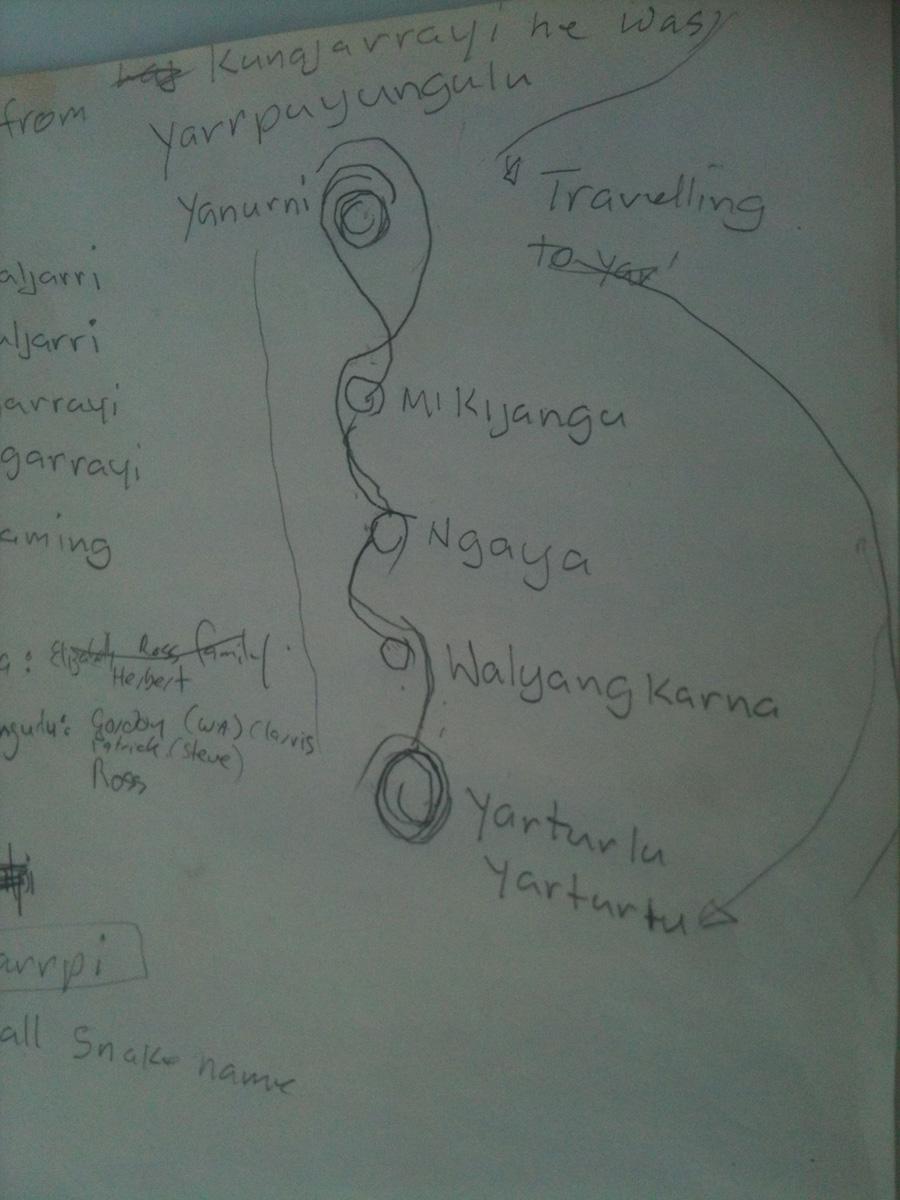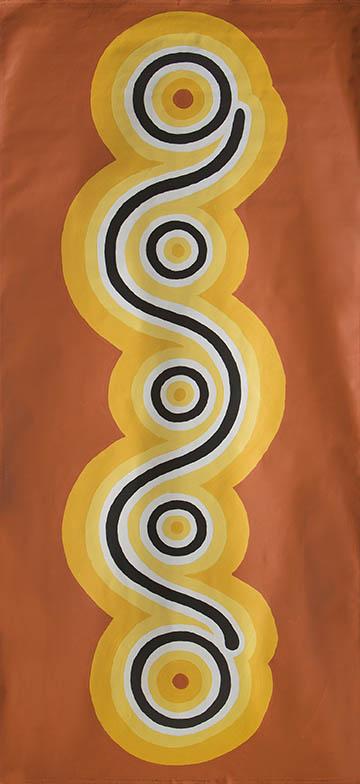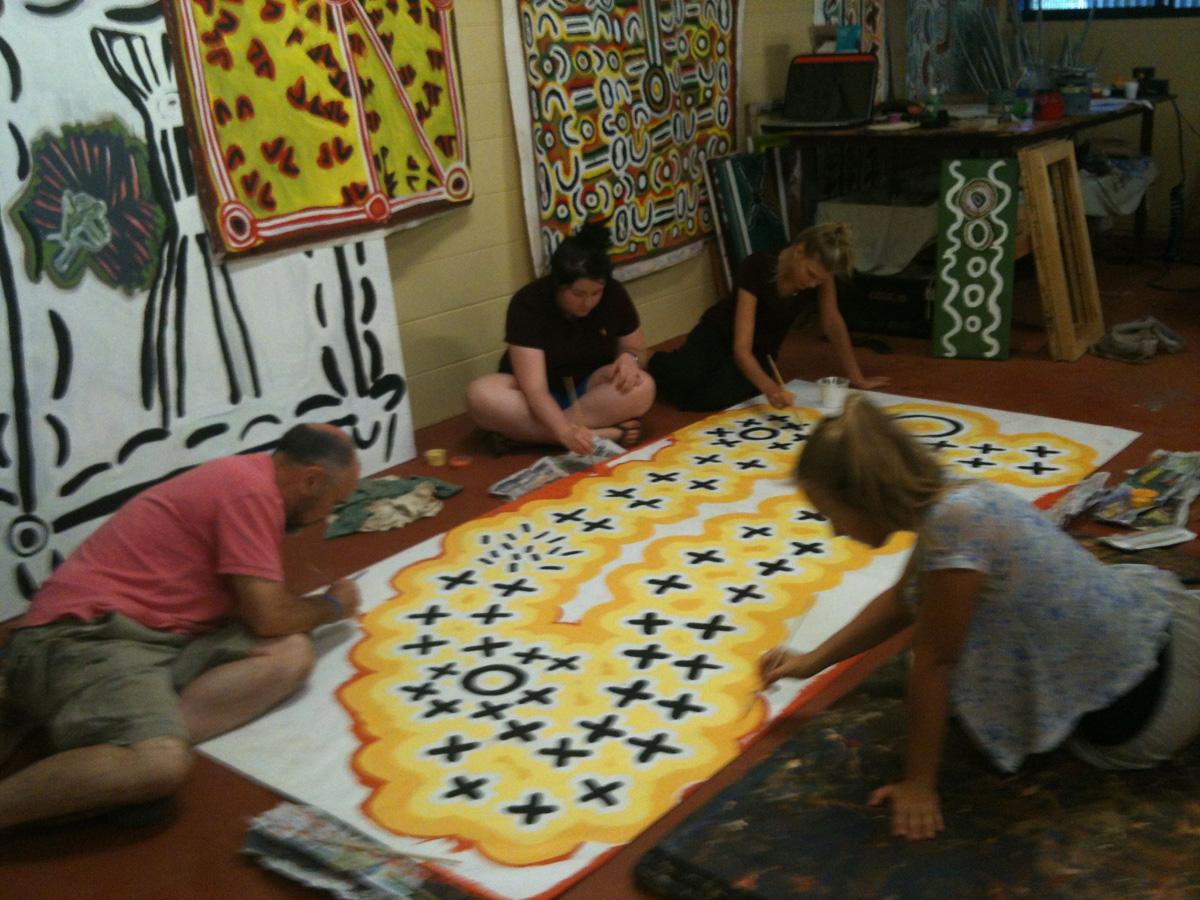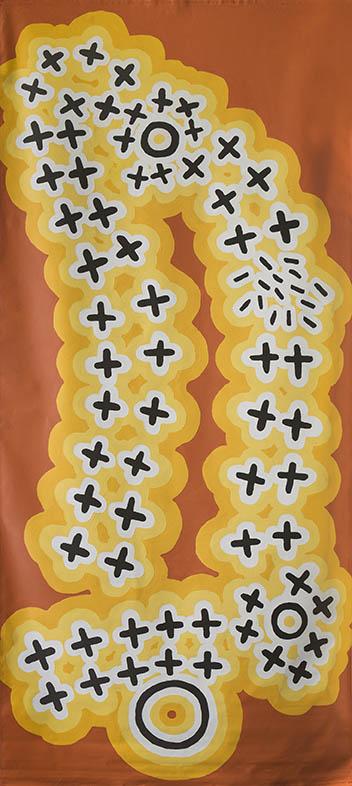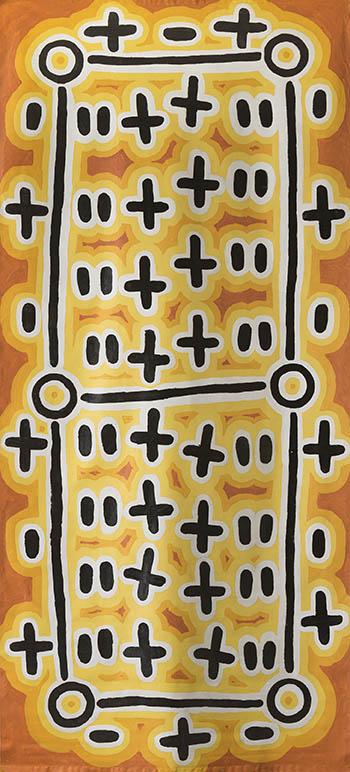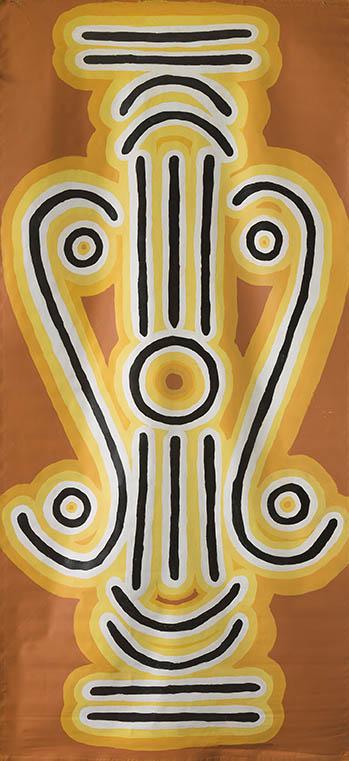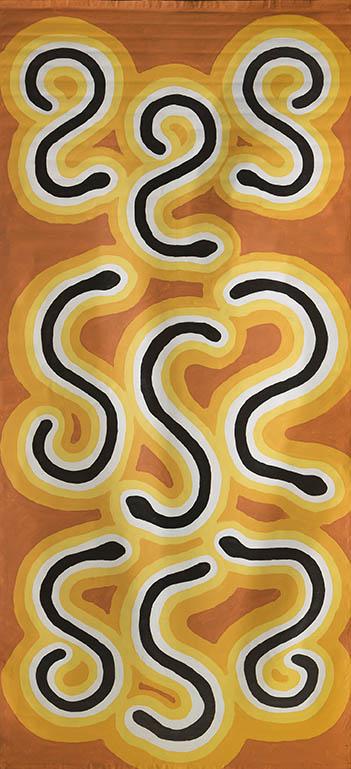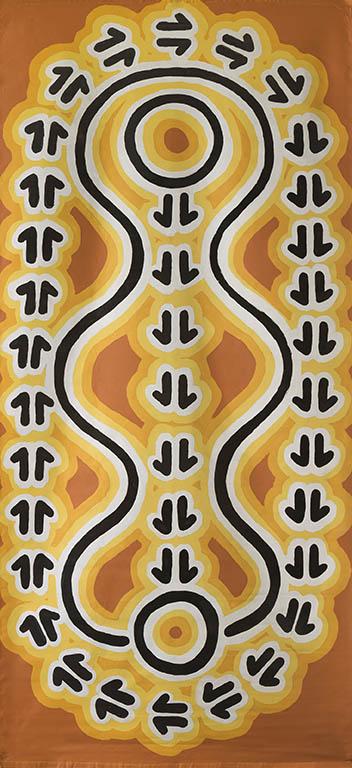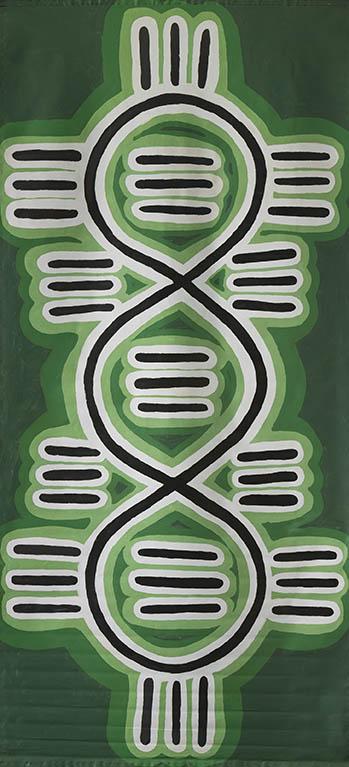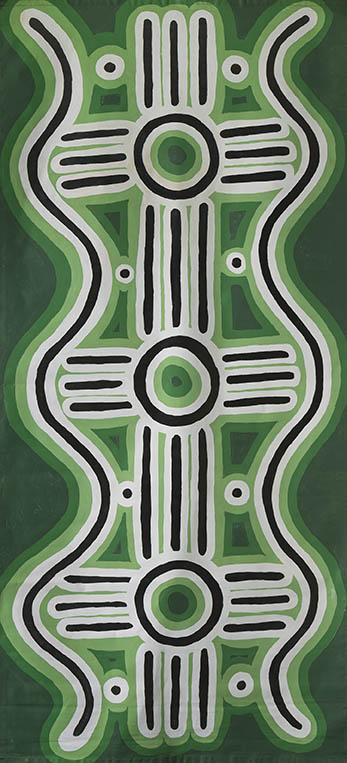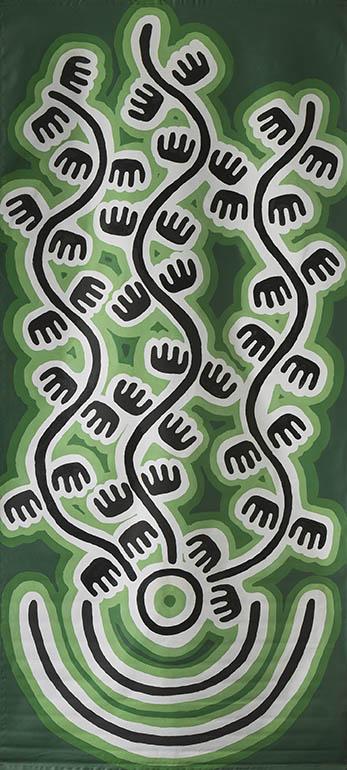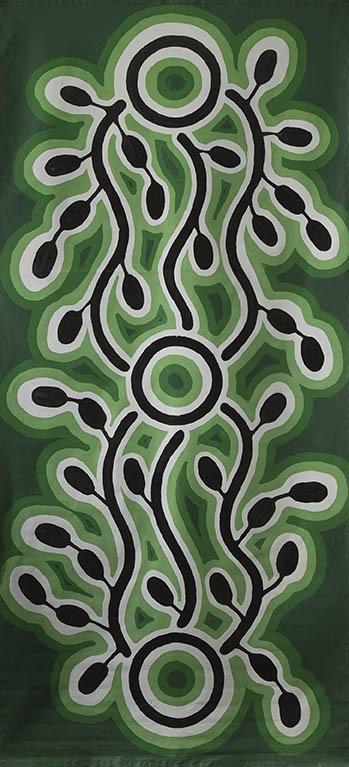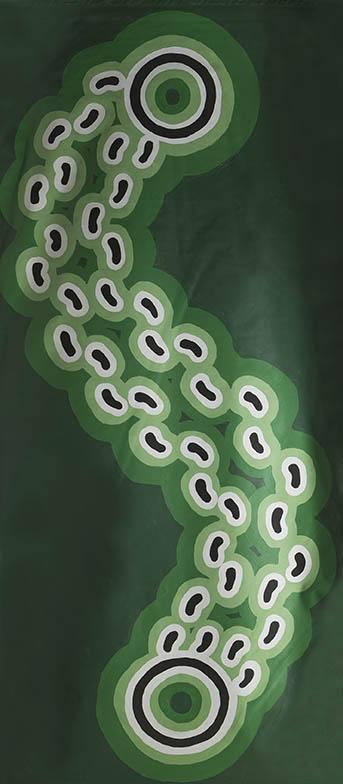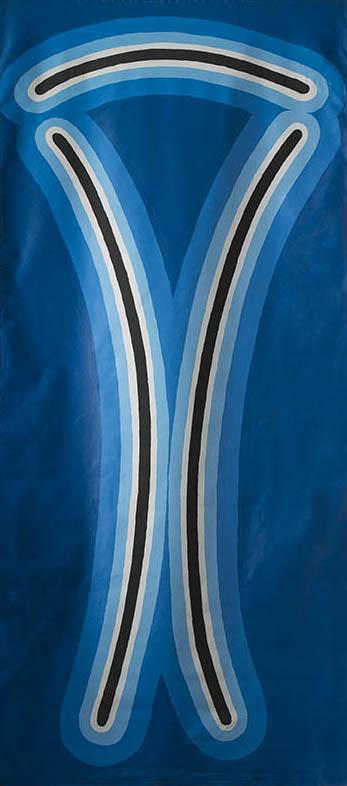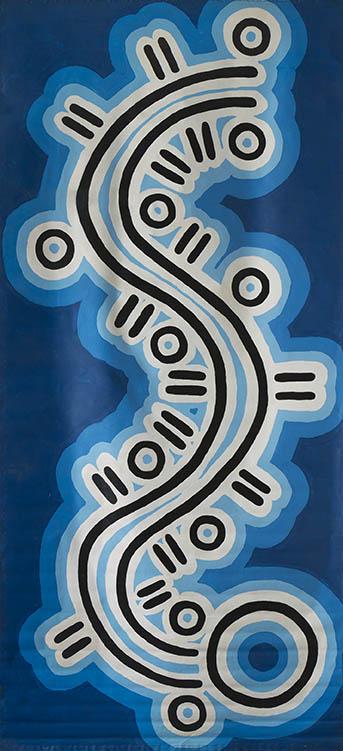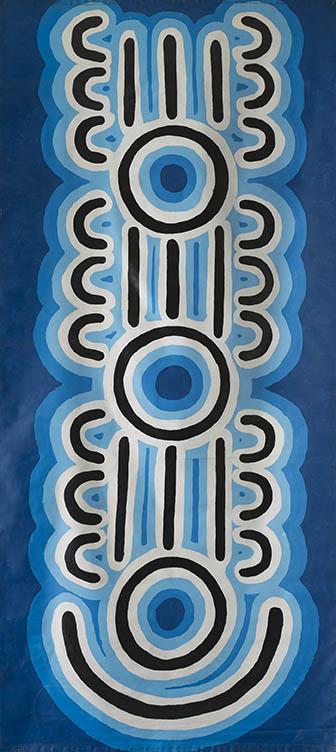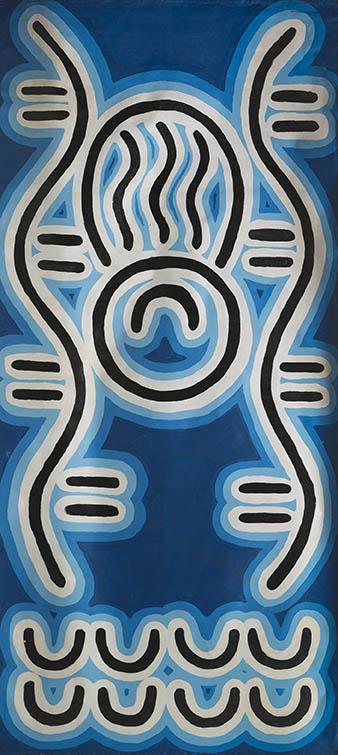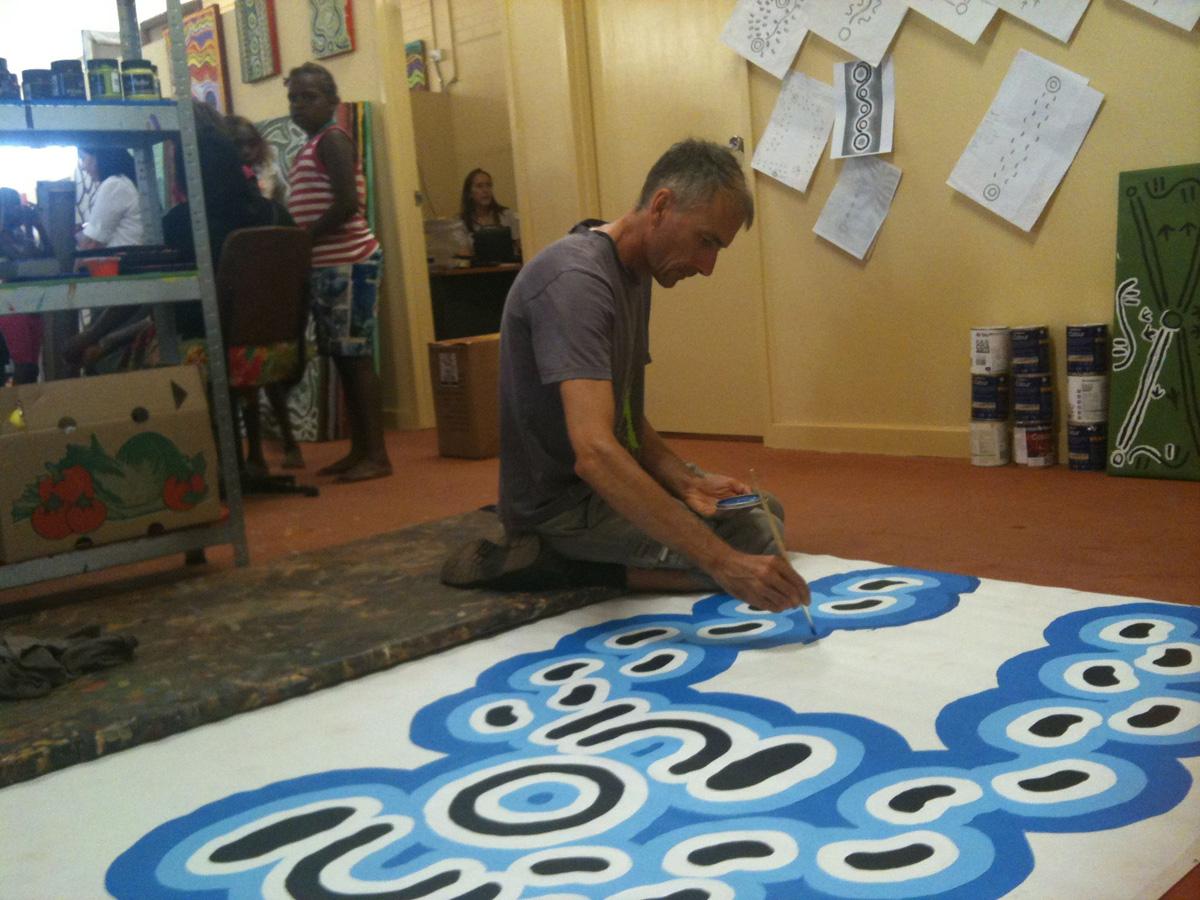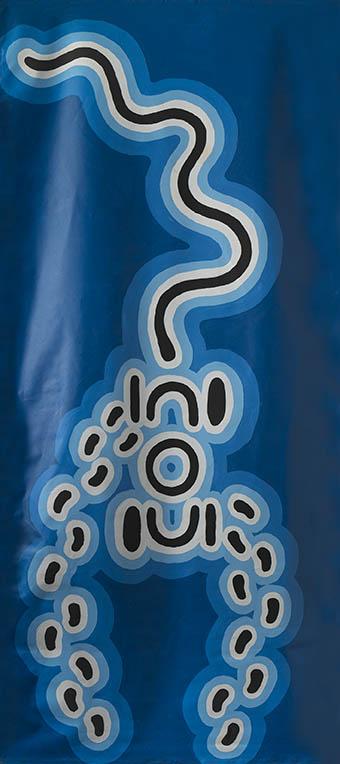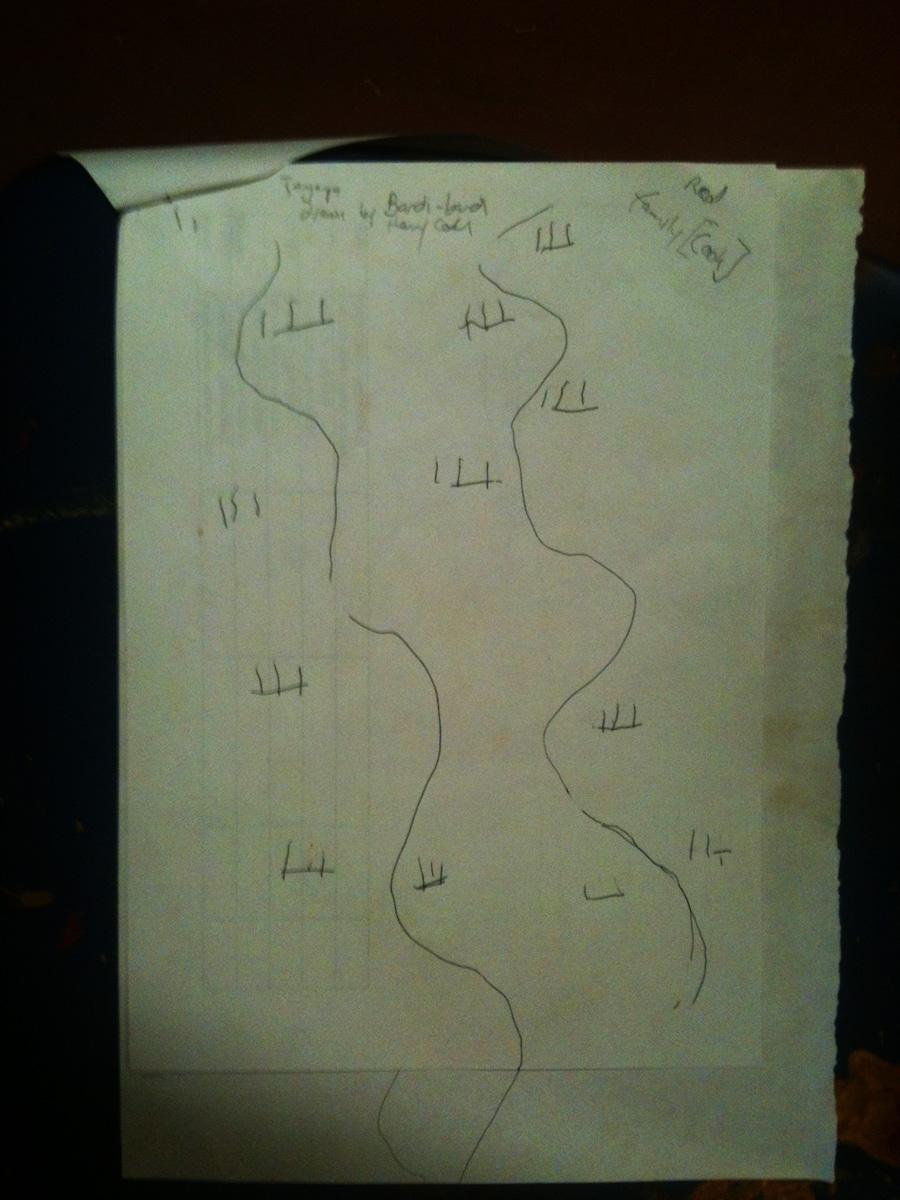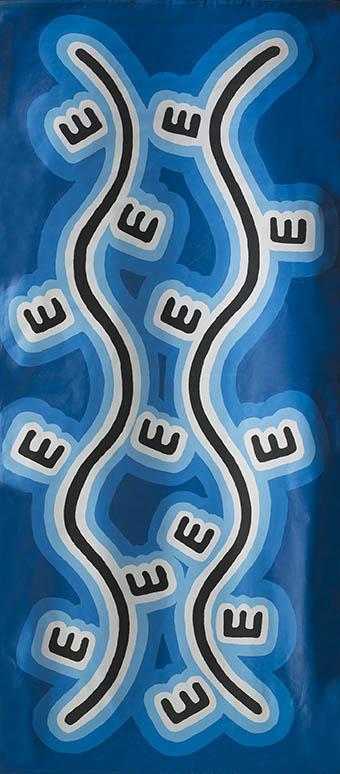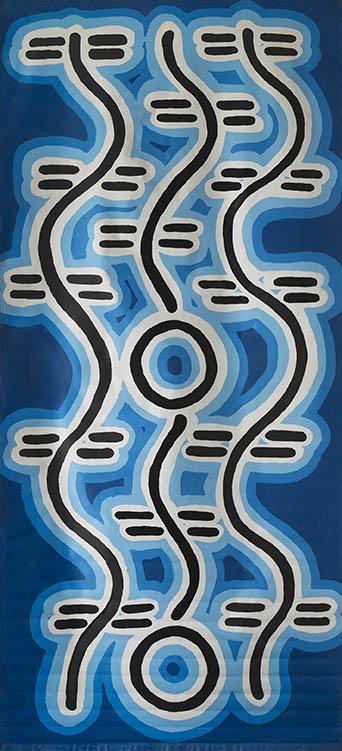Making of the Milpirri Banners
Text
Lajamanu, Northern Territory
As part of the first Milpirri performance in 2005 the idea of painting a series of large-scale paintings as a backdrop to the performance arose. The concept was to collect a dreaming design for each family group in Lajamanu. The paintings or banners would then act as a kind of coat of arms symbolising the importance of everyone placed within Milpirri. Designs for sixteen banners were collected and painted that year. In Milpirri 2012 a further eleven designs were added.
The way the banners are painted originates from a 1989 Visual Arts Residency in the community where Freddy Jangala Patrick and Tim Newth collaborated. They developed a style which can be see on the 1989 water tank mural and in 1994 it was again utilised to create backdrops for the performance Lajamanu Kurra Karna Yani.
“Mural three on the small water tank beside the Wulaign out-station resource centre came out of the old men standing around watching the women paint, making sure they got it right. So on the Wednesday morning there was much talk followed by me being asked if I had a car. One man took me that morning to see trees, tracks, water holes; it is to here that the young people who are being born belong, their dreaming places. On our return, later that day there was some heated discussion on who should paint …
In the end, the old ‘Jangala’ decided he and I should paint and so that is what is happening, and although I don’t know what it means in the context of the world for me to be painting, the experience is one of the most rewarding so far, with each brush-stroke containing layers of meaning.”
Notes from Tim Newth's Diary
Creative Personal
Banner Designs: Joe Japanangka James, Jerry Jangala Patrick, Teddy Jupurrula Morrison, Myra Nungarrayi Herbert, Gladys Napangardi Kelly, Tim Jupurrula Kennedy, Peter Japanangka Dixon, Lindsay Jungarrayi Herbert, Leslie Jampijinpa Robertson, Norman Jampijinpa Kelly, Dick Japaljarri Raymond, Jacko Jakamarra Gordon, Thomas Jangala Sampson, Marcus (Paku Paku) Lawson, Victor Jupurrula Simons, Robin Lawson, Molly Napurrurla Tasman, Rosie Napurrurla Tasman, Biddy Nungarrayi Long Anderson, Judy Napangardi Martin, Liddy Nampijinpa Miller
Painted by: Tim Newth, David McMicken, (Lance) Alan Box (2005) and many members of the Milpirri team and Lajamanu community
Milpirri Creative Director: Steve Wanta Jampijinpa Patrick
Milpirri Artistic Directors: Tim Newth, David McMicken
Thank You
Milpirri Governing Body: Geoffrey Jungarrayi Barnes, Roger Japaljarri Jurrah, Stephen Japanangka Dixon, Minawara (Steven) Jupurrula Morton, Steven Wanta Jampijinpa Patrick, Peter Jangala Jigili, Lynette Napangardi Tasman, Noressa Napurrurla White, Doris Nakamarra Lewis, Laura Nakamarra Lewis, Annette Nampijinpa Patrick
Rob Chapman - Governance Project Coordinator, Central Land Council, Michael and staff -Lajamanu Shire workshop, Louisa and staff - Warnayaka Arts Centre, Richard - school workshop, Jim and staff - Lajamanu Progress Association
Sponsors
Lajamanu Progress Aboriginal Corporation
Funding Bodies
Tracks Inc is assisted by the Australian Government through the Australia Council, its arts funding and advisory body; and is proudly sponsored by the Northern Territory Government.
Tracks 2012
Artistic Co-Directors: David McMicken and Tim Newth
General Manager: Susan Congreve
Administrator: Gail Evans
Production Manager: Kelly Blumberg
Dance Animateur: Jess Devereux
Bookkeeper: Heather Van Anholt
Committee Members: (Chair) David Taylor, (Vice-Chair) Jill MacAndrew, (Treasurer) Glenn Bernardin, (Secretary/Public Officer) Michael Grant, (Ordinary Committee Members) Ken Conway, Nick Papandonakis, Stephanie Cvirn, (Ex-Officio Members) David McMicken and Tim Newth
Public Fund Trustees: Rev. Steve Orme, Dr Anita Toth, Ippei Okazaki
Patron: Her Honour the Honourable Sally Thomas AM, Administrator of the Northern Territory
Photos
Videos
Explore Further
Participants Response
"I learnt about traditional dancing from the female elders, and about my culture from my grandfather while we were painting and talking about the blue banners. I enjoyed dancing and doing the paintings because it made me feel proud of myself and my father and grandfather."

